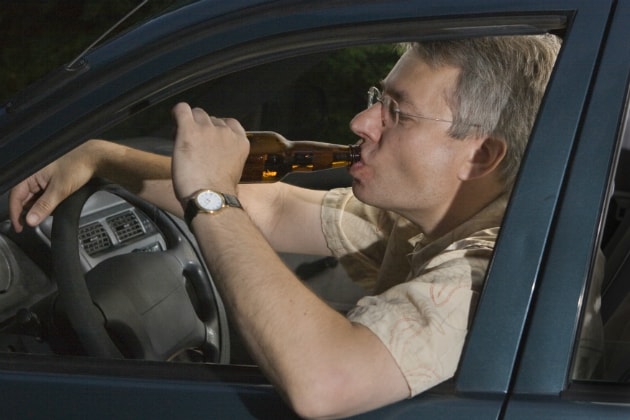
To get a DWI reduced in Texas, you or your DWI lawyer must negotiate with the prosecutor or petition the court to have the charges reduced or thrown out. A DWI reduction will decrease the severity of the charges and penalties that you face or, in the best possible scenario, the prosecutor or a judge will agree to dismiss all charges pending against you.
There are a few ways to have a driving while intoxicated (DWI) charge reduced in a Texas court, and they include:
- You or a lawyer negotiating a plea for a lesser charge
- You or a lawyer requesting (also known as petitioning) that the court dismiss the charge
In certain cases, you may not be able to secure a plea deal that works for you, and the charges may not be dismissed (though these two outcomes are possible). A third option for getting a DWI reduced in Texas is to fight the charge in trial.
Explaining DWI Law in Texas
The term driving while intoxicated, commonly referred to by its acronym DWI, is the charge levied upon those who are found to be drunk or suspected of being drunk while operating a motor vehicle. In Texas, the basis for a DWI charge generally includes:
- You were operating a motor vehicle at the time of contract with a law enforcement officer
- You took a breathalyzer test or blood test that showed your blood alcohol concentration (BAC) was .08 or greater OR you refused to take such tests
- A law enforcement officer suspected that you were legally intoxicated, regardless of whether you consented to give a breath or blood sample
- A law enforcement officer suspected that you were under the influence of drugs other than alcohol while operating a motor vehicle
Whether you provided a breath or blood test that showed you were legally drunk at the time of your arrest or you refused such a test, you may be facing a charge of driving while intoxicated. In either case, you may have a chance at lowering the DWI charge. If you do not at least attempt to lower the charge, you could face serious consequences.
The Cost of a DWI Conviction
According to Section 49.04 of the Texas penal code, a first-time DWI conviction is a Class B misdemeanor. The Texas Politics Project asserts that if you are convicted of a Class B misdemeanor, then you could face:
- Up to 180 days (six months) in jail
- A fine of up to $2,000
- Suspension of your license for up to one year
There are several factors that could increase the severity of your DWI charge. For example, if you submitted a blood or breath sample that showed a BAC of .15 or higher, the DWI charge could escalate to a Class A misdemeanor. For a conviction of a Class A misdemeanor, you may face:
- A jail term of up to one year
- A fine of up to $4,000
- Suspension of your license for up to two years
If you have a child passenger in your vehicle at the time of your arrest, a conviction for DWI could be categorized as a felony. A felony conviction may result in:
- Between 180 days (six months) and two years in jail
- A fine of up to $10,000
If you get convicted of DWI, the costs levied by the court (both in terms of your potential incarceration and fines), are not going to be the extent of your conviction-related expenses. You may see additional costs from:
- Legal fees
- The cost of income you lost during your incarceration
- The cost of your reputation being damaged, which could result in difficulty gaining employment and housing, and paying higher insurance premiums
These consequences reinforce how important it is for you to attempt to have your DWI charge lowered.
Can a DWI be Reduced in Texas?
The ability to have a DWI charge reduced or dismissed may depend on the strength of, (or lack of) evidence against you. Some factors that may be in your favor when attempting to lower your DWI charge may include that:
- You refused to submit to a breathalyzer test or blood sample
- You do not have prior convictions for DWI or other criminal charges
- You were respectful in your interactions with law enforcement
It is possible that actions by the arresting officer or officers in your case may affect whether you can have your DWI charge reduced or dismissed.
It is also possible that – regardless of the evidence in your case – a prosecutor and judge could show leniency and agree to reduce your charge. Some charges that may be offered as part of a plea agreement could include:
- Reckless driving
- Obstructing a highway or other passageway
Each of these offenses may carry less serious legal consequences than a DWI conviction.
Why Should I Try to Get My DWI Reduced?
In Texas, the penalties for a DWI conviction can significantly disrupt your life.
Even a first-offense DWI could put you behind bars. You will also face expensive fines, court costs and fees, and a lengthy suspension of your driver’s license. And because a DWI conviction is usually not eligible for expunction, you will need to contend with a permanent criminal record that can interfere with your ability to get a job, obtain affordable car insurance, or even rent an apartment.
You could also face an extended jail or prison sentence depending on the circumstances surrounding your arrest. If you had an excessive blood alcohol concentration (BAC), if you had a minor passenger or open container, or if you have prior DWI convictions, you may even face felony charges.
Getting drunk driving charges reduced or thrown out is the best way to minimize or eliminate the potential damage and disruption of your life. It may also be the only way for you to stay out of jail.

Why Would the Court or Prosecution Consider Reducing a Texas DWI?
Texas takes a strong stance on drunk driving and, sometimes, that zealous approach can lead to a wrongful arrest or charges.
In some cases, the police may violate your legal rights or make critical errors in handling your arrest. In other cases, problems with chemical BAC testing can lead to mistakes that may invalidate key evidence.
If you can demonstrate these errors to the prosecutor or the court, it can provide leverage for negotiating a lesser charge or the dismissal of your case.

What Is the Process for Getting a DWI Reduced in Texas?
DWI reduction lawyers begin by scrutinizing the evidence in your case, looking for any errors the police or the technician that conducted chemical testing for BAC made.
For example, the police may have lacked reasonable suspicion for pulling you over or probable cause for placing you under arrest.
Or, if the technician administering a breathalyzer test lacked the proper certification, this can provide a powerful tool for negotiating with the prosecutor for lesser charges.
If the prosecutor refuses to consider a reduction in your DWI charges, our team may be able to petition the court to dismiss your charges.
Can I Get an Underage DWI Reduced in Texas?
If you face an underage drunk driving charge, you also have options for getting the charges reduced.
Typically, prosecutors pursue DUI charges for drivers under the age of 21 who register any detectable BAC. However, if your BAC tested at 0.08 or above, the police may have charged you with the more serious offense of DWI.
With the right evidence and approach, a DWI reduction lawyer may successfully negotiate with the prosecutor to reduce that charge to DUI. Your lawyer may then convince the court to defer adjudication or allow you to participate in a diversion program.
The successful completion of a deferral or diversion program may allow you to avoid having a permanent criminal record for a Texas drunk driving conviction.
What Reduced DWI Charges Are Available?
If errors in your case lead the prosecution to believe that getting a conviction would be difficult or impossible, it may offer a reduced charge that carries less severe penalties.
If you face a felony DWI charge, your lawyer may get those reduced to misdemeanor charges. Or the prosecutor may agree to a lesser charge. Some potential alternatives include the following charges:
- Obstruction of a passageway
- Reckless driving
- Public intoxication
Although these charges may still result in fines and other penalties, you can avoid having a DWI on your permanent record.
How Can a Lawyer Help with Getting Drunk Driving Charges Reduced?
When you trust attorney Randall Isenberg and his team to assist you in pursuing a DWI reduction, you can rest assured that we will protect your legal rights and do everything possible to achieve a favorable outcome in your case.
With more than three decades of experience in the Texas criminal justice system, Randall has unique insight that we will put to work on your behalf. We will answer your questions and explain your options, so that you can make the best choices for your future.
To schedule a no-cost, no-obligation consultation with the team at the Law Offices of Randall B. Isenberg, contact us today at 214-696-9253.










